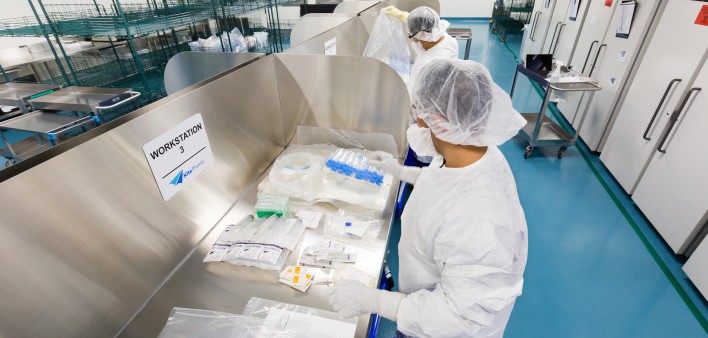NICE backs use of Gilead/Kite CAR-T via Cancer Drugs Fund

A pair of new guidance documents from UK cost-effectiveness authority NICE could see hundreds of more blood cancer patients eligible for treatment with CAR-T therapies from Gilead Sciences’ Kite Pharma unit.
The first of the new draft recommendations paves the way for Kite’s Yescarta (axicabtagene ciloleucel) to be used for patients with diffuse large B‑cell lymphoma (DLBCL), whose cancer is relapsed or refractory, for standard first-line chemotherapy.
This is the first time that any CAR-T therapy has been cleared for NHS use as a second-line option, according to Gilead. Yescarta is currently available as standard care after two or more systemic therapies have failed.
Gilead and Kite recently presented data from the ZUMA-7 study showing that Yescarta achieved a statistically significant improvement in overall survival (OS) for the initial treatment of relapsed/refractory DLBCL versus historical standard of care in a curative setting – the first and only treatment to do so in nearly 30 years.
NICE said that earlier use of Yescarta could make up to 500 people a year eligible for the cell-based therapy, more than doubling the potential population. In January, the agency said – when recommending third-line use of the CAR-T – that it would make it an option for approximately 450 people.
Dr Sridhar Chaganti, consultant haematologist at Queen Elizabeth Hospital Birmingham, said the decision was a “pivotal moment” for CAR-Ts used to treat DLBCL, as until now these therapies “have been reserved for use when patients have failed traditional standard of care and had few options remaining.”
At the same time, NICE has also recommended Kite’s Tecartus (brexucabtagene autoleucel) for treating relapsed or refractory B-cell acute lymphoblastic leukaemia in people aged 26 and over, becoming the first CAR-T for this type of blood cancer in the UK.
The health technology assessment (HTA) agency estimates that around 90 people with this type of ALL per year would be eligible to receive Tecartus, which becomes an additional option alongside chemotherapy and immunotherapies.
Both drugs are being made available via the Cancer Drugs Fund (CDF), which provides interim funding for new therapies that are promising, but don’t yet have the strength of evidence needed to support routine coverage under the NHS.
Evidence on the two treatments will be collected over the next four years, after which NICE will update its guidance.
Gilead’s general manager for the UK and Ireland – Dr Véronique Walsh – welcomed the decisions, but said getting them available to patients in England had been a “long and complex” endeavour.
“NHS patients are now accessing these new indications after their peers in other countries,” she pointed out. “Industry, NHS England, and NICE must continue to work together and collaborate to ensure that the process is accelerated and improved for the new waves of innovative cancer medicines, and that there is equitable access to such treatments for all eligible patients.”












